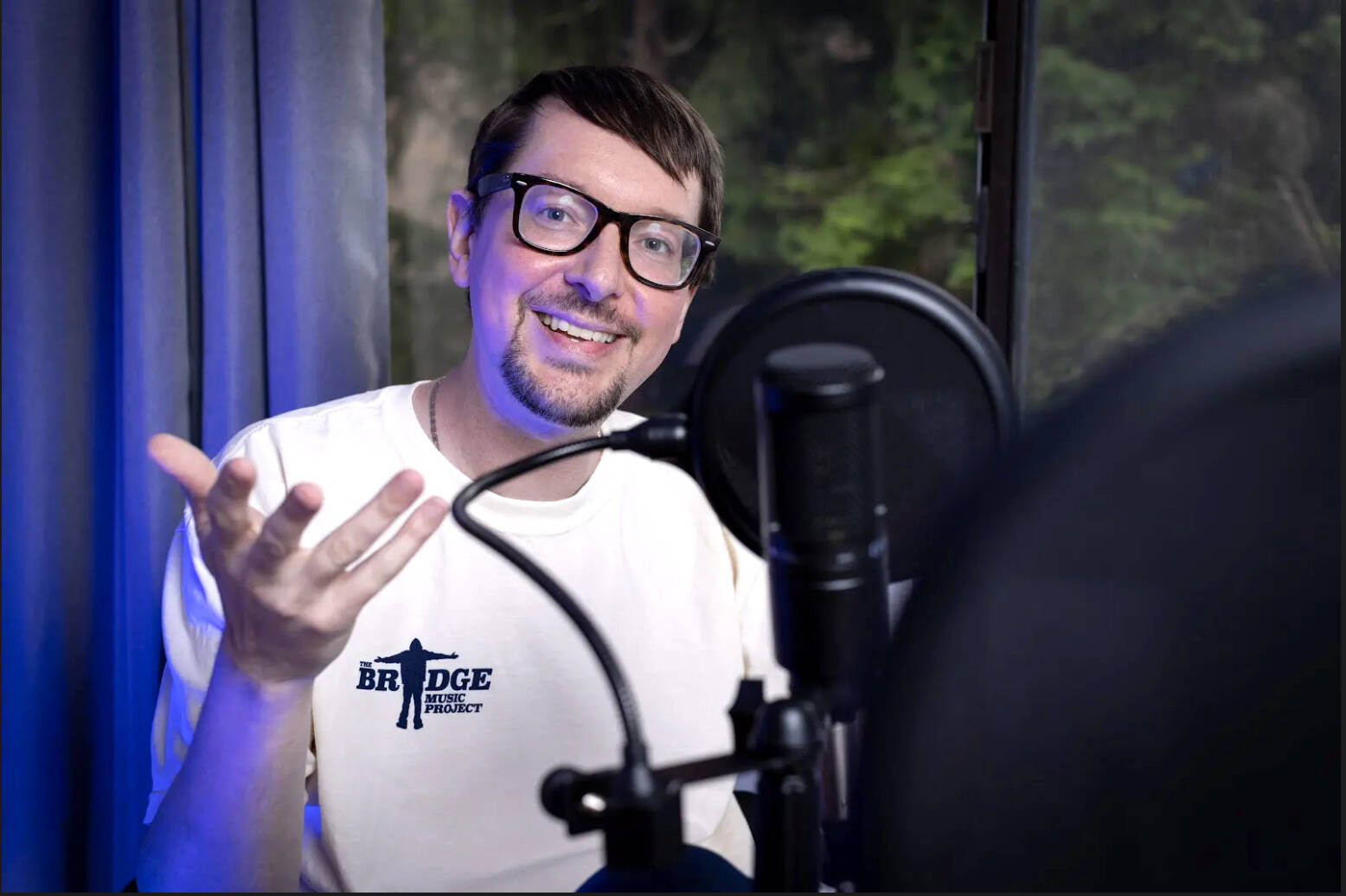Bobby Williams is trying to help by sharing stories about youth within the justice system who are trying to better their lives.
The podcast, called “Dignity: A Podcast Docu-Series on WA Juvenile Rehabilitation,” is on all streaming platforms. It started Oct. 24 and will run once-per-week for seven episodes. This is the second season of the podcast.
Williams, in partnership with Washington state’s Department of Children and Families created the podcast. Williams is the executive director of The Bridge Music Project, which is a nonprofit organization from Grays Harbor County. The nonprofit hosts songwriting workshops at music venues, schools and juvenile rehabilitation facilities including Green Hill School and Echo Glen Children’s Center.
In addition to telling the stories of young people within the juvenile justice system who are working to improve their lives, it also tells stories of the juvenile rehabilitation staff who support the youth.
“Each episode in the series will explore subjects related to the lives of young people in JR, including cultural identity, creativity, anti-violence, and reentering the community,” Williams said.
What is Juvenile Rehabilitation?
“(Department of Children, Youth and Families) Juvenile Rehabilitation (program) serves Washington state’s highest-risk young people, who are convicted of crimes that reflect the profound violence, neglect, trauma, addiction and other challenges they faced before they ever reached our doors,” states the Washington State Department of Children Youth and Families. “The goal of JR is to deliver treatment, provide resources, and develop skills so young people can plan for their future and reenter their communities.”
According to Washington state Department of Children and Families, the program serves youth up to 25 years-old who are committed to juvenile custody by a court.
How was the podcast made?
Williams interviewed more than 40 people throughout the juvenile justice system, including youth, community-based organizations, administrators and floor staff.
“Juvenile Rehabilitation has faced a lot of challenges and this podcast isn’t trying to make light of that,” Williams said. “The mission of the show is to share stories that don’t always make the news about youth growing as individuals and the adults who care about making a difference.”
The first episode tells about an ongoing sweat lodge program at Green Hill. Williams participated in the sweat lodge program with a young person to document the experience. During the episode, the youth explains how it helped him.
“It helped me through a lot of pain when I lost my family,” the youth said during the episode. “I’ve been doing sweat lodge my whole life. My dad (was) full-blooded Native American. … I’m used to it. I think about my loved ones.”
From the podcast
In the latest episode, titled “Cultural Identity” Williams talks about juvenile rehabilitation.
“For nearly 10 years I’ve worked with youth involved in juvenile rehabilitation,” Williams said. “What I’ve come to realize is a lot of the community doesn’t have much information about juvenile rehabilitation and the work being done. I’ll start by saying that Washington’s rehabilitation system is far from perfect. Being incarcerated is inherently traumatic. There’s a lot of change that needs to happen.”
The podcast’s seventh and last episode will flip the script a little bit because the young people at Green Hill School interview the people who who have made an impact in their lives. The people they’ll interview include mentors, educators, and cultural leaders.
“Dignity: a Podcast Docu-Series on WA Juvenile Rehabilitation” can be found on Spotify, Apple Podcast, or Amazon. It can also be found at www.dignitypodcast.podbean.com.
For more information, contact Williams at bobby@bridgemusicproject.org, or call him at 574-309-1484.



